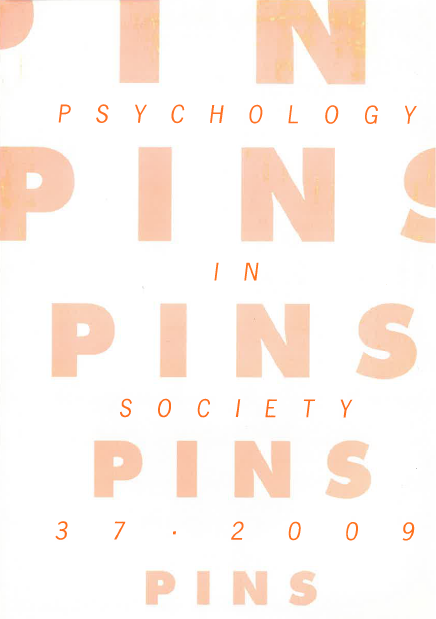“GEVAARLIKE1 TRANSITIONS”: NEGOTIATING HEGEMONIC MASCULINITY AND RITES OF PASSAGE AMONGST COLOURED2 BOYS AWAITING TRIAL ON THE CAPE FLATS.
DOI:
https://doi.org/10.17159//2309-8708/2009/n37a1Abstract
This study looks at the way 25 coloured, Afrikaans speaking boys, awaiting trial for various crimes, position themselves in relation to forms of hegemonic masculinity. Hegemonic masculinity refers to popular ideologies of ideal and actual characteristics of what it means to be a “real man”. These ideologies are located in public spaces and institutions, such as the media, corporate world, military and government. Specifically, the paper explores how forms of hegemonic masculinity influence the boys in this study’s rite of passage into manhood, which is observed in their stories of initiation into gangsterism. Through these tales the boys construct their masculinities in the form of both dominant, global understandings of what it means to be the “real man” and local language and descriptions of practices and rituals. They therefore create hybridised gendered identities, from their particular contexts. Whilst the boys endorse forms of
hegemonic masculinity, such as a “Tupac Shakir outlaw” masculinity and a corporate executive masculinity, slivers of ambivalence appear in their discourse. This is due to the fact that these hegemonic masculinities are either largely unattainable or they temporarily empower the boys, but also leave them as children awaiting trial alone.
Downloads
Downloads
Published
How to Cite
Issue
Section
License
This journal is an open access journal, and the authors' and journal should be properly acknowledged, when works are cited.
Authors may use the publishers version for teaching purposes, in books, theses, dissertations, conferences and conference papers.
A copy of the authors’ publishers version may also be hosted on the following websites:
- Non-commercial personal homepage or blog.
- Institutional webpage.
- Authors Institutional Repository.
The following notice should accompany such a posting on the website: “This is an electronic version of an article published in PINS, Volume XXX, number XXX, pages XXX–XXX”, DOI. Authors should also supply a hyperlink to the original paper or indicate where the original paper (http://www.journals.ac.za/index.php/pins) may be found.
Authors publishers version, affiliated with the Stellenbosch University will be automatically deposited in the University’s’ Institutional Repository SUNScholar.
Articles as a whole, may not be re-published with another journal.
The copyright of the article(s) lies with the author(s).
The copyright of the journal lies with PINS-psychology in Society.
The following license applies:
Attribution CC BY-NC-ND 4.0 - https://creativecommons.org/licenses/by-nc-nd/4.0/

